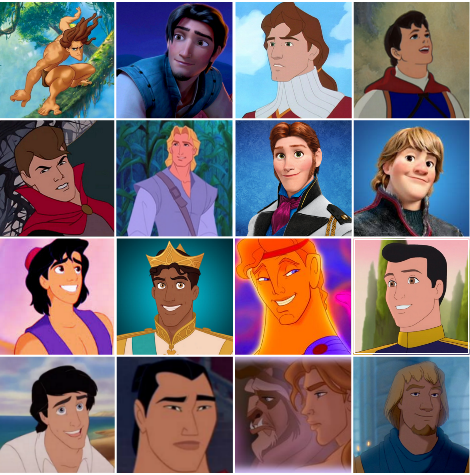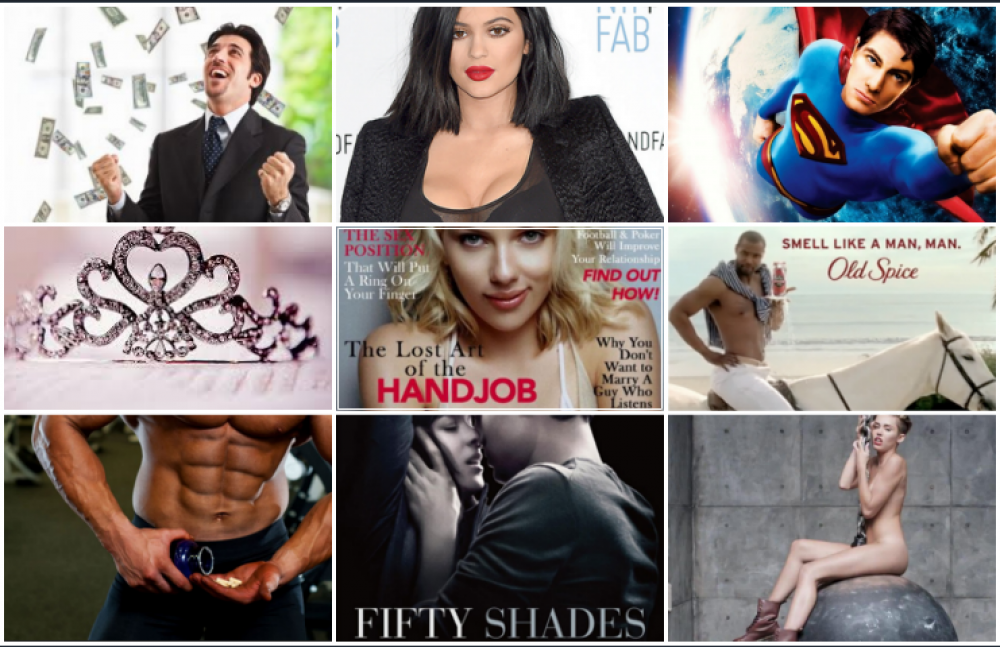
The effects of Disney Princess movies on little girls are pretty obvious, however, it is often overlooked how much it impacts our little boys. I am not saying that girls have it easy, but at the same time, I am not going to stand here and say that boys do not face similar levels of discrimination. Growing up in the late 20th and 21st centuries is hard for the boys, and here’s why.
- How do princes look?
At the very root of all princess movies, appearance holds the highest standards. Of course girls are expected to look a certain way, however, with the recent progression of the 21st century, more diversity has been brought into the fairy tale world, but this cannot be said for the boys. Even in the 21st century, the princes are vastly underrepresented. They are to be tall and muscular. In addition, they should have a sculpted jaw line, a dazzling smile with sparkling white teeth, and glimmering eyes. Their skin should be white. There are several movies with racial diversity, however, it is definitely not accurately depicted to reflect society. On the other hand, the hair is normally of a darker shade, such as brown or black with exception of Kristoff (though he is sure to be more of a “sandy blonde”) and John Smith (though not really a prince).
- How do they act?
Princes and other male Disney characters have a tough personality requirement to fit. The girls have been allowed a more evolving character type such as playful and carefree for the newer movies, or domestic and responsible for the older ones. The men, conversely, have remained pretty consistent since their creation. They are to be very charming with a loaded arsenal of wit and comical responses. Even more, they are to be overly masculine and controlling of their female counterparts. Princes should not be emotional but rather the anchor for the “emotionally distraught” women. This is not too great for their mental health. The only semi-representation would be the emotions of The Beast (who tends to be very angry) or Aladdin (who though he is not emotional, he is rather depressed with his current life situation). Furthermore, the men are expected to be lady-killers with very arrogant and self-absorbed attitudes.
- What do they do?
While women relax in their castles and maintain the households, the men have to overcome various obstacles with ease. Horseback riding, dragon slaying, and villain whooping can all be found within a day’s work. Atop of all of this, they still have to get the girl, which they assume will just crumble at their feet upon their arrival to save the day.
Despite these physical characteristics and expectations, the men are disproportionately underdeveloped compared to the women. As placeholders, they are created to fit the mold to make way for the princess’s fairy tale. It is her story, not his.
How does this all affect our boys?
Boys often feel like they do not fit within the Disney community because it is, for the majority, directed towards girls. They see these overly abused male representations and do not feel like they can identify with these characters. There is a massive amount of responsibility put on these little boys’ shoulders. They are bearing all of these burdens and expectations but they are not allowed to show the pressure it has on them.
Perhaps part of the problems American society has with the image of femininity and the lack of equal rights could be found in how Disney represents its men. Girls are portrayed to be a certain way, but so are the boys. Even more so, boys are taught to treat women like they do in the movies. Likewise, girls expect every relationship to be with Prince Charming. In order to propel America into the direction we want, boys need to be relinquished from their responsibilities as men in Disney movies. Girls don’t need to be constantly looked after, rescued, and cared for and there is certainly nothing wrong with an emotional man with a strong mind, but not body.
Progression has been taking small steps for our girls, but it’s time we pay a little more attention to what our boys are seeing.

Char!
I love your blog! This was the first time I have been on it and the theme and content you chose to discuss is very important. Mainstream/ pop-culture media influences so much of our actions that this is a great topic to talk about. I also enjoyed how you mention the male roles in Disney movies, this is something that is not brought up a lot and I like how you did it! (:
Elizabeth
LikeLike
Interesting thoughts! I’ve heard some conversation on the gender stereotypes of the Disney prince, but strangely enough, their appearance never seems to get mentioned… fishy… I love that you discussed it here!
LikeLike